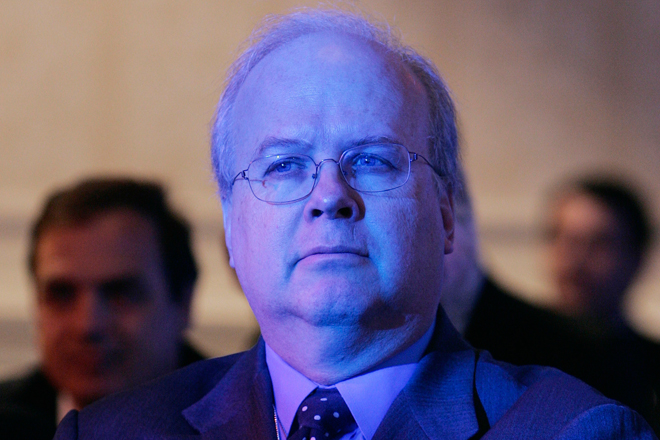A new Pew Research poll out Tuesday finds that 62 percent, including 36 percent of Republicans, think the GOP is out of touch with Americans. After the 2012 elections, a sensible segment of the party expressed a willingness to combat that perception. But within the party, there’s resistance, and that tension reflects the ongoing battle for the direction of the Republican Party.
Here are some of the key issues causing the great GOP schism:
1. Gay Marriage
A group of prominent former Republican officials argued this week that same-sex marriage is a constitutional right, filing a brief in support of a Supreme Court challenge to Proposition 8, California’s ban on gay marriage. But the flip side is another case before the Supreme Court, a challenge to the Defense of Marriage Act, which bans same-sex marriages for the purposes of receiving federal benefits. Since the Obama administration announced in February 2011 that it would no longer defend the law in court, House Republicans elected to continue on in its stead, and have spent $3 million taking up the reins.
And though public opinion is shifting toward legalizing gay marriages, this year’s Conservative Political Action Conference is adhering to its previous policy of shutting out gay Republican groups like GOProud.
2. Gun Control
After the Newtown school shootings, a number of Republicans said they’d be open to broadening the background check system, and some have even tentatively expressed support for universal background checks. “Universal background checks is something that there could be consensus on,” said Ana Navarro, a Republican strategist who worked on John McCain’s 2008 campaign. Sen. Dean Heller, R-Nev., has said universal background checks are “a reasonable step forward.” Even a coalition of House Republicans have indicated they’d be open to expanding the program.
But the NRA has been doing its best to paint any attempt at background check expansion as an effort by the Obama administration to register gun owners, for the purposes of eventually confiscating all guns. Then there’s Rep. Steve Stockman, R-Texas, who has suggested that he would file articles of impeachment against President Obama if he takes executive action on gun control. And on the state level, Republican legislators have been finding creative ways to block any gun laws from being implemented, like proposing legislation to make it a felony to enforce federal gun control laws.
3. Immigration
A bipartisan group of senators rolled out a plan for immigration reform earlier this year, which included a pathway to citizenship. Among the senators were Republicans Marco Rubio, R-Fla., and John McCain, R-Ariz., two key players in the immigration debate. Though there is some daylight between the Senate’s plan and the Obama administration’s (and Sen. David Vitter, R-La., called Rubio “nuts” for supporting the plan), the real challenge, as always, is going to come from House Republicans, who have been painting a pathway to citizenship as “amnesty.”
Rep. Bob Goodlatte, R-Va., the chairman of the House Judiciary Committee who will eventually oversee whatever House legislation gets drafted, said that a pathway to citizenship is a non-starter. “People have a pathway to citizenship right now: It’s to abide by the immigration laws, and if they have a family relationship, if they have a job skill that allows them to do that, they can obtain citizenship.” Rep. Lamar Smith, R-Texas, said in a recent statement: “By granting amnesty, the Senate proposal actually compounds the problem by encouraging more illegal immigration.” And Rep. Peter King, R-N.Y., agreed. “It’s very difficult for me to support something that allows that type of amnesty,” he told Newsday.
4. The Sequester
Sen. Lindsey Graham, R-S.C., said this week of tax hikes: “I’m willing to raise revenue. I’m willing to raise $600 billion of new revenue if my Democratic friends would be willing to reform entitlements.”
Sen. Ron Johnson, R-Wis., on the other hand, said he believes that if House Speaker John Boehner “caves” on tax hikes, “I don’t quite honestly believe that Speaker Boehner would be speaker if that happens. I think he would lose his speakership.”
The Tea Party already came after Boehner for the deal he made to avert the “fiscal cliff” back in January, which passed without much support from conservatives. Boehner wound up holding onto his speakership by just a handful of votes, though many of the defections were symbolic.
5. Karl Rove
Karl Rove’s attempt to bolster mainstream, establishment candidates in the 2014 primaries has made a lot of conservatives unhappy. Rove’s initiative, called the Conservative Victory Project, is an effort to enlist GOP mega-donors to crush Tea Party candidates before they have a chance to prove unelectable in the general election.
The initiative evoked an unsurprising amount of ire from conservatives and Tea Party groups, who described Rove’s move as bullying, among other things. Even Newt Gingrich said he thinks Rove’s plan is going to backfire. But some of the battle lines have been drawn even thicker: Rep. Steve King, R-Iowa, a potential Senate candidate in 2014 and a named target of Rove’s group, is both aligning himself with the Tea Party Patriots to shore up support for his run, and fundraising off of Rove’s designs on his prospective campaign.

